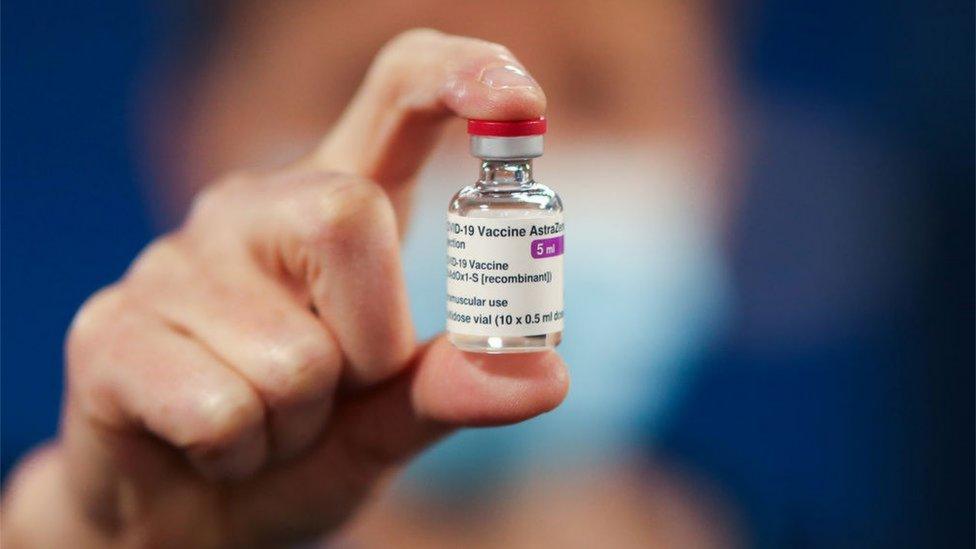Vaccine passport: What is it and why are people talking about it?
- Published
- comments
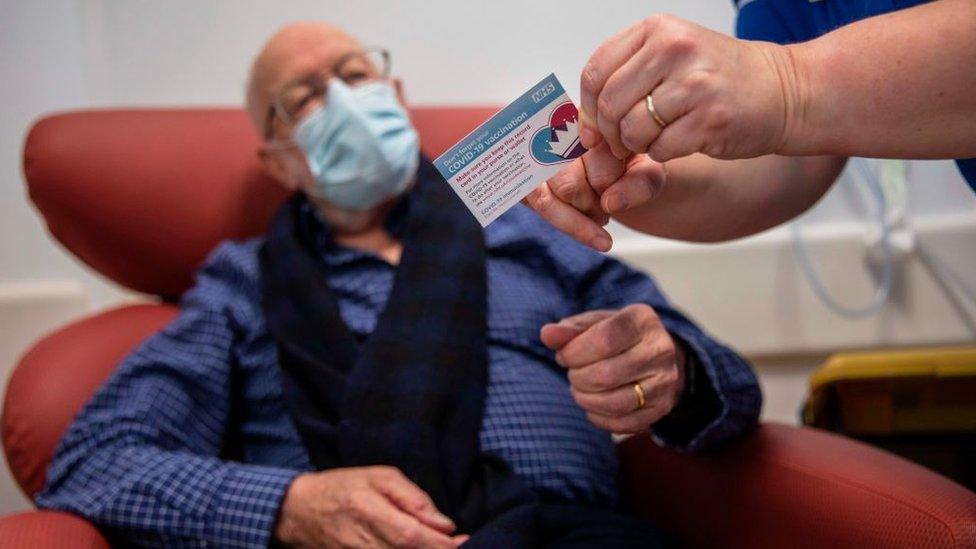
In the UK, those who've received the coronavirus jab are given a vaccination card
The Government has announced plans for a Coronavirus passport scheme for adults, which they want to start trialling this month.
It is hoped these passports will allow big events, like sports matches to restart and cinemas to reopen.
Millions of adults across the UK have now received at least their first jab of the Covid vaccine, and the government say the scheme is the next part of their plan to allow people to get back to doing what they love.
The trial events will last until mid-May and include the FA Cup semi-final and final, and an open air cinema event in Liverpool.
Children will not be involved in the scheme.
Many see the idea as a positive thing, but others are warning that vaccine passports could lead to some people being discriminated against.
So what do people mean by a 'vaccine passport'? And what are the pros and cons?
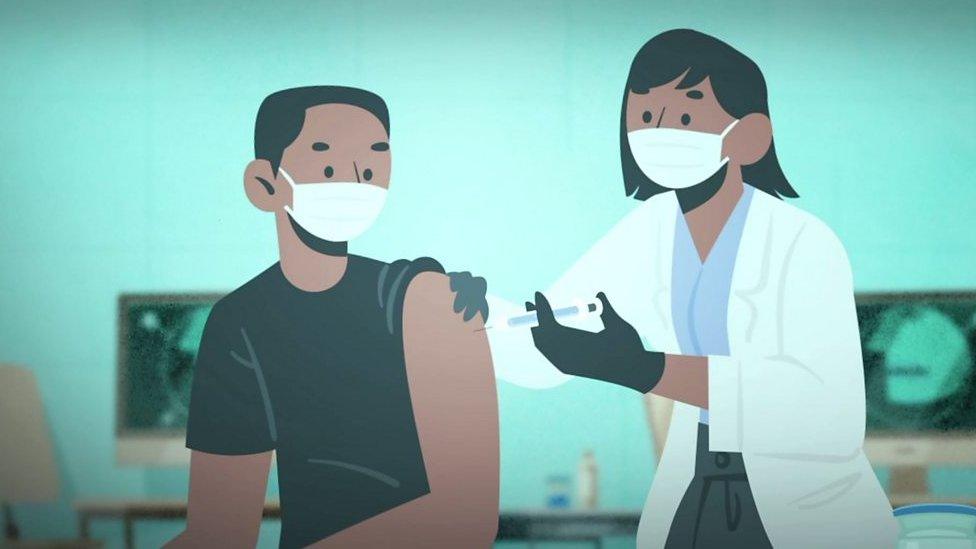
What is a vaccine passport?
The idea of a vaccine passport is essentially a way for an adult to prove they've received an injection against a particular disease or infection like the coronavirus.
Currently in the UK, those who've received the coronavirus jab are given a vaccination card and the details are added to their medical records.
However, several countries including the UK, are thinking about other ways of recording a person's vaccination status. This could be via a physical document or certificate, or the information may be stored digitally, like on a phone app.
That way people could use it to prove they've either been vaccinated, or that they've recently tested negative.
There are lots of arguments right now about this and many different views, as it raises lots of different issues.
What are the arguments FOR vaccine passports?
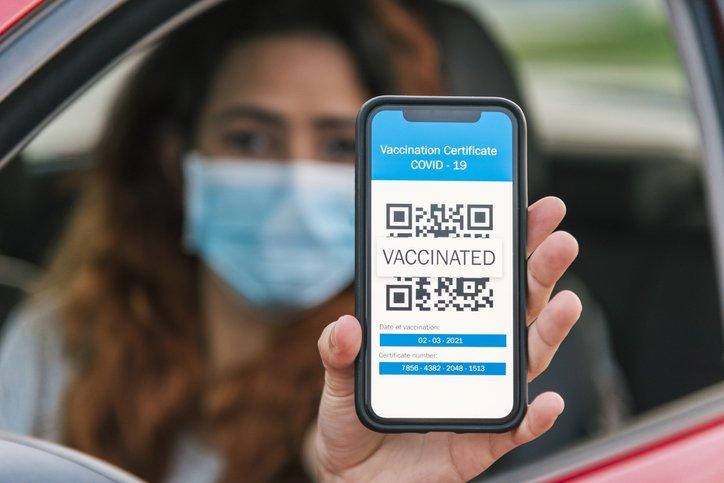
This is how a phone app version of a vaccine passport might look
People who support vaccine passports argue that it's a very good way of safely opening up different parts of the UK.
People who have been vaccinated are less at risk of catching coronavirus and becoming seriously ill if they do. Scientists also believe there is emerging evidence that some vaccines - like the Pfizer vaccine - appear to also slow the spread of the disease.
So it's argued that being able to show you have been vaccinated means that cinemas, sports venues and concerts might be able to open up safely. At the moment the government say that the passports would not have to be used for going into shops or on public transport.
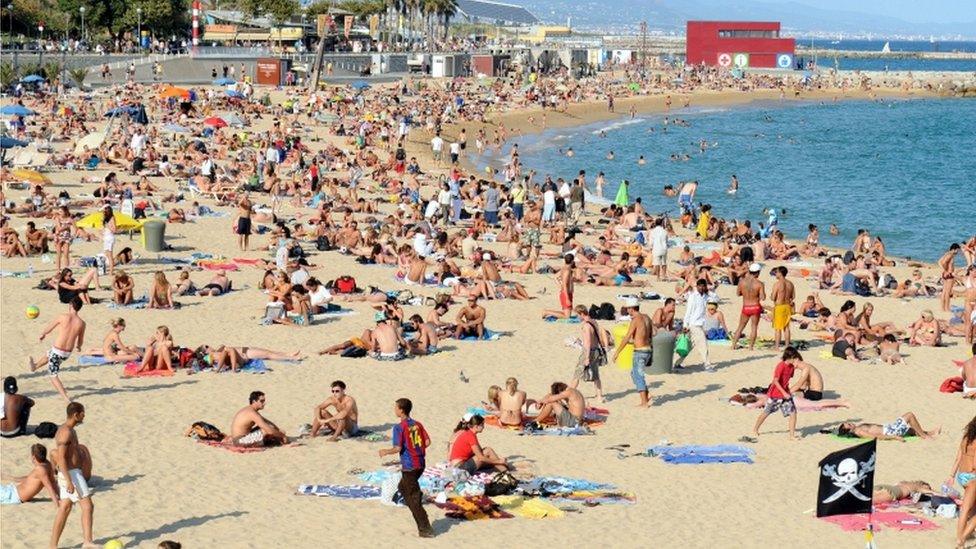
Some believe vaccine passports will enable to people to feel safer when travelling abroad
It's also argued that the passports could make it a lot easier for people to travel.
It would allow travellers to move safely between different countries or regions without the fear of contracting the virus - and also being able to reassure the countries they are visiting that they are less likely to bring it in.
There have also been some discussions around vaccine passports and jobs, for instance making it a condition of a job - such as a nurse or a care home worker - to have the vaccine to protect the people they look after.
What are the arguments AGAINST vaccine passports?
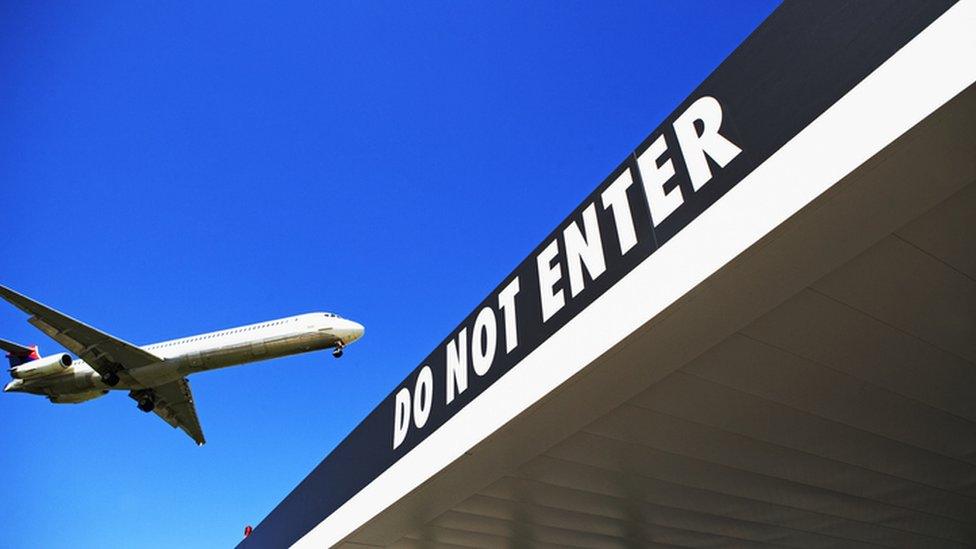
However, some feel the introduction of a vaccine passport or certificate could lead to people being discriminated against. That means that some people would be excluded from certain activities,
For instance, only certain parts of the population have been vaccinated - at the moment in the UK it's only people aged over 50, those who work in certain types of jobs and people with illnesses or disabilities that make them vulnerable to serious illness.
Also there are some groups that can't have the vaccine - which could be because of a medical condition. And of course, at the moment children aren't being given the vaccine.

As well as that, it's important to say that the vaccine isn't compulsory in the UK - although they are strongly encouraged to have it, people can choose not to.
So there are worries that if businesses and attractions decide to ask people to show they've had a vaccine before they come in, it may not be fair on those people who haven't had it.
There is also the issue of vaccination around the world. The most vaccinated countries are, at the moment, the wealthiest countries which can afford to buy lots of vaccines for their populations.
Could a passport system mean that people from countries which don't have a fast vaccine rollout are banned from travelling anywhere else?
What happens next?
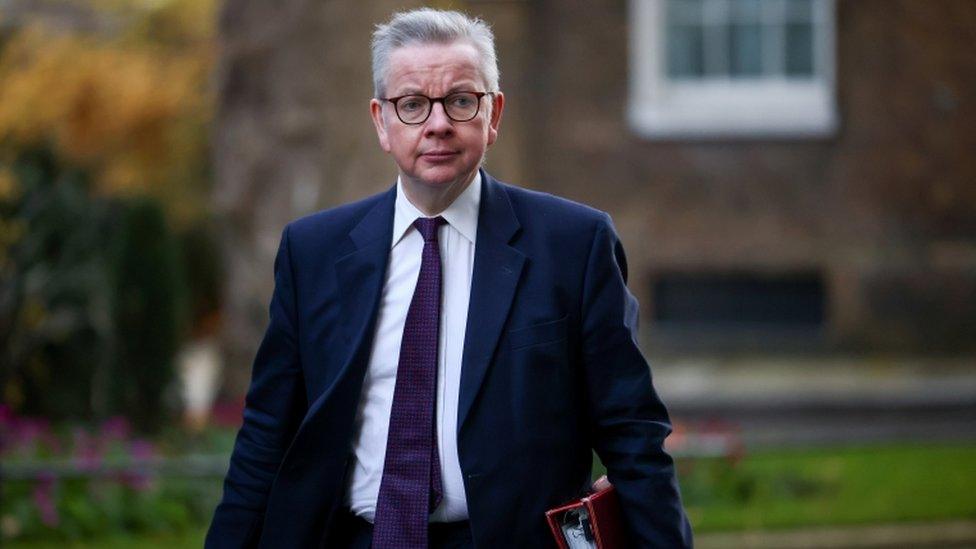
Michael Gove is leading the government's review on Covid vaccine certifications
The government will trial a vaccine passport in England at several test events this month to see how effective it is.
It's hoped it will allow sporting events in England to take place without social distancing rules having to be in place.
The first pilot will be at a comedy event in Liverpool on 16 April where audience members will be tested for Covid before and after the show.
It will then be tested during the FA Cup semi-final and final and also during the World Snooker Championship in Sheffield.
The NHS has said it's working on a system to allow people to show they are Covid negative through a mobile phone app.
The government has said it's working on a system to help those who aren't medically recommended to get the vaccination.
It has also confirmed that the trial won't affect businesses that can re-open in the next couple of weeks including restaurants and non-essential shops on the high street.
The proposed plans cover England only, but the government is discussing the scheme with Scotland, Wales and Northern Ireland.
What are other countries doing?
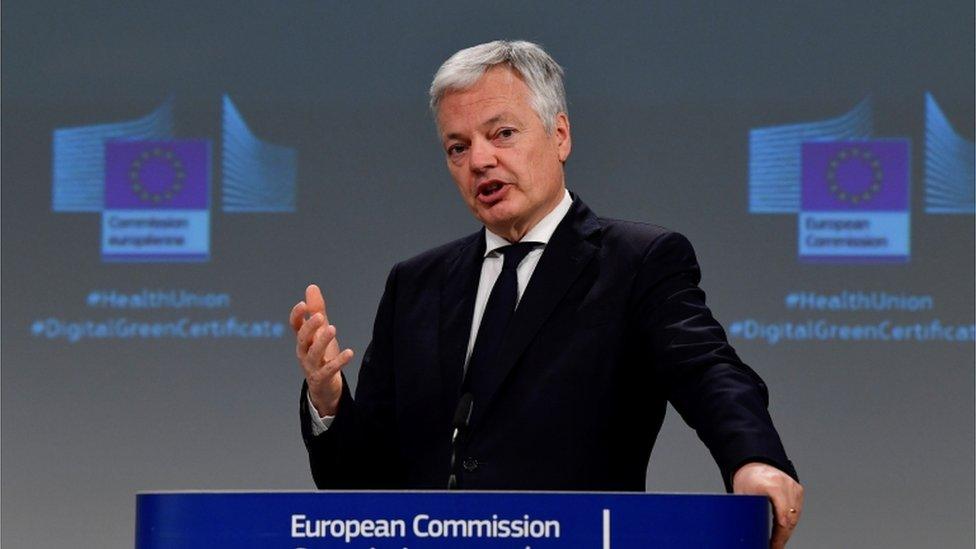
European officials have revealed their plans to introduce an EU-wide 'Green Digital Certificate' by the end of the summer
The introduction of vaccine passports is an idea several other countries are also considering.
European officials have revealed their plans to introduce an EU-wide 'Green Digital Certificate' which would allow those who've had the coronavirus vaccine, tested negative, or recently recovered from the virus, to freely travel within the region.
Officials have said they hope for it to be in place before the summer tourist season.
Denmark, Sweden and Estonia are currently in the process of developing their own digital vaccine passports.
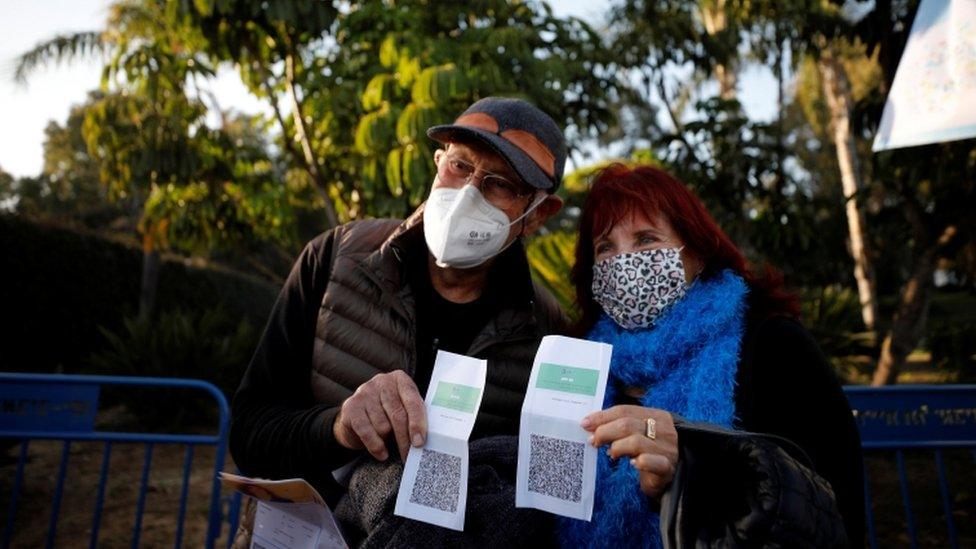
Israel has introduced the green pass for those who've either been vaccinated or have recovered from the coronavirus
Israel introduced its own version of a vaccine passport known as a 'green pass' in February and those who've either been vaccinated or have recovered from the coronavirus are eligible to apply for one.
- Published19 November 2020
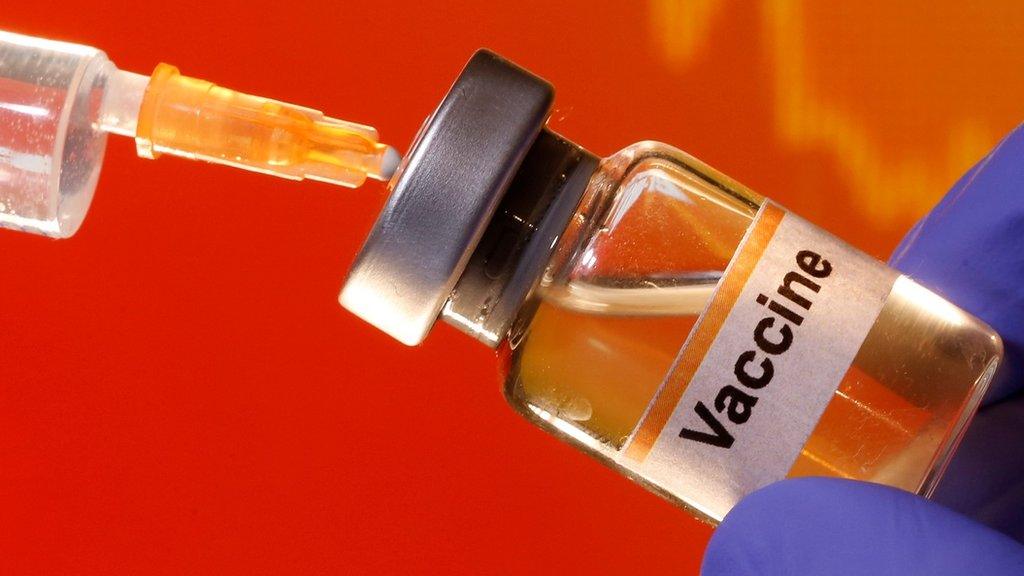
- Published7 June 2021
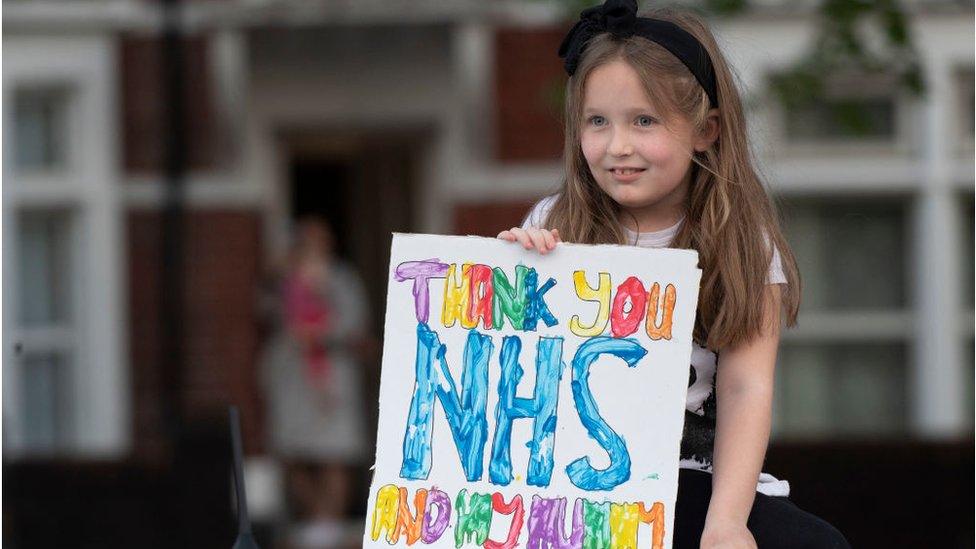
- Published14 April 2021
